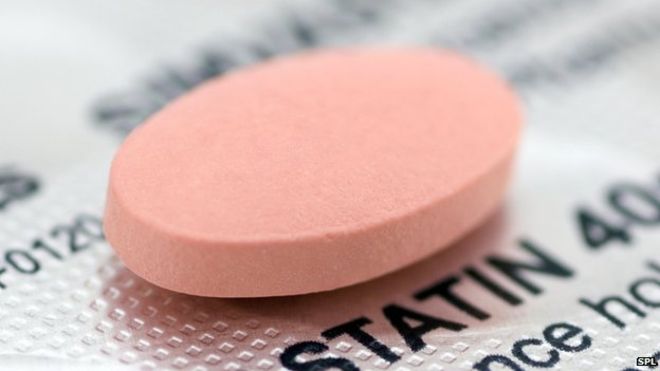Health News (Week 15 – 2019)
By Robert Redfern

You are likely to have seen in the media that Mick Jagger had to cancel a recent tour with his band so he could have emergency treatment to have an artificial aortic heart valve fitted. This was shown to be urgently needed in the usual pre-tour, ‘health check’, required by the insurance company. This should NOT have happened to him or anyone.
Mick Jagger has been dramatically let down by the medical business for this to happen. There are many factors to consider here including;
Mick Jagger (unlike many other Rock Stars) lives a healthy lifestyle including his foods, drink and definitely no drugs.
He keeps fit and at aged 75 he excels 99% of our age group as a role model for aging.
So, how has he been let down? Heart valves do not suddenly degenerate and need replacing. I understand it is a slow process and often it is linked to a shortage of iodine in the diet leading to a thyroid problem.
Since it is a slow process, his doctors (especially at his age), should have given him a full health check every couple of years including a 4D Echocardiogram scan that would have identified the degenerating valve and advised him to take appropriate action.
He then would have been advised to have it checked every year or so and if it got to the point where it needed an artificial valve it could have been done at an appropriate time. Instead, he was rushed into it at an inappropriate time. He was let down.
Where do I come into this?
About seven years ago I had an Echocardiogram scan of my whole body from a cardiologist (since I was 65 and was a little late for checking things are OK). The scan showed degeneration of my aortic heart valve. The scan showed it was less than 20% which is classed as not dangerous. The cardiologist said it needed checking every year to ascertain when it would need replacing. At this point, I said I would research how to stop the degeneration at which he replied: “nothing can stop it”.
Two years after following the plan I had researched, I went to a different Cardiologist in Germany for a repeat scan. He reported that the scan showed it was definitely much less than 20% degeneration and was happy to tell me to carry on with my plan. He also checked all of my cardiovascular/arterial systems and gave me an ‘all clear’.
Recently I went for a check-up for my valves and was given a ‘no-change’ report.
Get an Echocardiogram Scan
I strongly recommend you do better than me (and Mick Jagger) and consider having one after the age of 45. Every 5 years until 65 and then every couple of years after that. Whatever they find gives you the opportunity to clear it up. If they find nothing then you are doing a good job.
EchoCardiography
Echocardiography is a painless, non-invasive test that uses sound waves to create moving pictures of your heart and arteries. The pictures show the size and shape of your heart. They show how well your heart’s chambers and valves are working and also, any blockages or calcifications in your arteries.
Echo can also pinpoint areas of heart muscle that aren’t contracting well because of poor blood flow or injury from a previous heart attack. A type of echo called ‘Doppler Ultrasound’ shows how well blood flows through your heart’s chambers and valves.
Echo can detect possible blood clots inside the heart, fluid build-up in the pericardium (the sac around the heart), and problems with the aorta. The aorta is the main artery that carries oxygen-rich blood from your heart to your body.
3D echocardiography (is the older version of the new 4D echocardiography). It is in common use and is not as good as 4D for the best diagnosis.
4D Four-dimensional echocardiography technology features Anatomical Intelligence, or the use of organ modeling technology to automatically identify anatomy. Built on feature recognition and segmentation algorithms, this technology can provide patient-specific four-dimensional modeling of the heart in full colour and other aspects of the anatomy including arteries, the brain, lungs, liver, kidney, rib cage, and vertebral column. Doctors also use echo to detect heart problems in infants and children. In the UK it is available privately for a huge range of conditions and see them at https://www.ultrasound-direct.com
In all other countries, you will need to Google or ask your doctor for a recommendation about where you can get a private scan. Note your doctor will try to dissuade you.
Should you get a scan?
I recommend everyone over aged 45 to get a scan every five years, if everything is clear, or every year if like me you need to evaluate how fast any problems are clearing. If you can get your doctor to prescribe it then you are very lucky. I use a private doctor and private cardiologist so I can tell them my requirements and have a sensible discussion about the plan I am going to follow. I listen to their opinion but politely disagree as in my case I am determined to heal the heart valve by natural methods.
My Plan?
Since the calcified valve is like most other health problems such as:
Fibromyalgia, Premature Ageing, Heart Attack, Stroke, Cancer, Diabetes, Thyroid-related health challenges, Neurological Conditions like Parkinson’s and Alzheimer’s, Depression, Infertility, Chronic Pain, and Digestive Disorders, which all have inflammation as the core cause the BASIC plan is the same for all of them.
I recommend:
- Serranol – x2 capsules upon waking
- SerraEnzyme 250,000iu – x1 capsule on waking and x2 at bedtime
- D-Ribose Plus – x5 teaspoons with breakfast and x5 with an evening meal.
- B4Health Spray x4 sprays x3 times over the day
- UB8Q10 (CoQ10) – x2 soft gel capsules with breakfast and x2 with dinner
Also consider:
To ensure you are getting the full range of nutrients.
Remember:
There are some essential nutrients missing in the food chain and the better your food plan and adding seaweed powder (Kelp) to your food, the less you will have to supplement as you get older. See www.ReallyHealthyFoods.com for recipe ideas.






There is some overlap with the Kidney health recommendations, but have a look at the full plan here for the Kidneys: https://serrapeptase.info/kidney-health-plan/
You recommend 5x teaspoons twice daily which would be 75grms of this sugar per day. The product label warns not to exceed 7.5grms per day. Please explain your recommendation of ten times the dose per day.
D-Ribose Plus – x5 teaspoons with breakfast and x5 with an evening meal. Is this the correct dosage and where did you get these dosage figures from?????
Hi Stephen, for more general requirements then 2 scoops per day of the product is fine, but for targeted support of the heart valves a higher intake is recommended.
Your Good Health Coaching Team
The Rolling Stones announced on March 30 that the band was postponing their tour over health reasons involving Jagger. He reportedly had successful surgery less than a week later. Drudge Report first reported Jagger was going to have heart valve surgery and that the procedure was happening in New York. The normal recovery time after heart valve surgery is typically four to eight weeks, according to the American Heart Association.